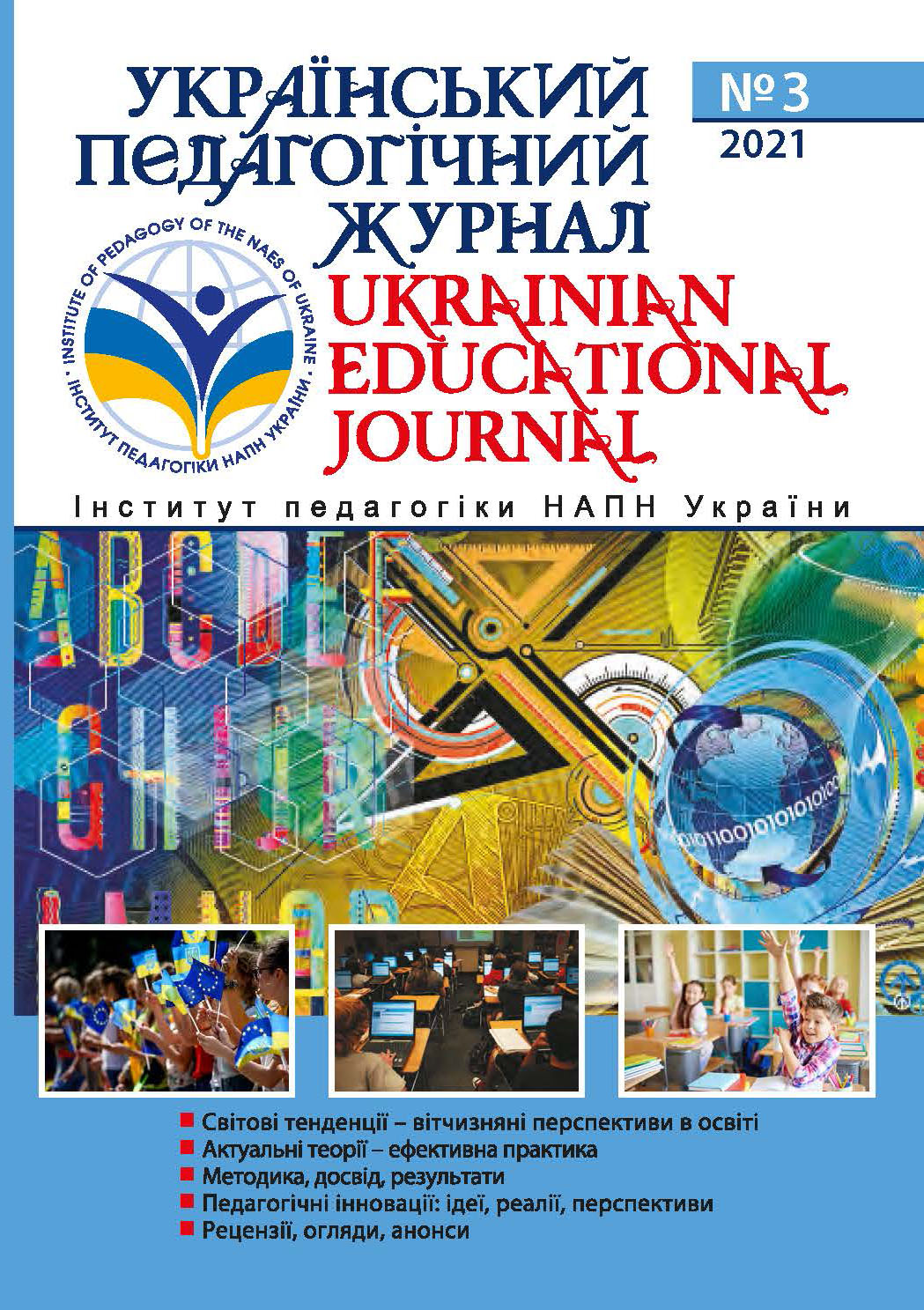Abstract
The article theoretically substantiates the need for the formation of communicative competence as an important component of professional competence of future specialists in economics. The basic components of modern human competencies are analyzed: linguistic (language), sociolinguistic, sociocultural, discursive, strategic and social. It is noted that the study of the discipline “Ukrainian language (for professional purposes)” is designed to ensure the formation of general cultural competence. The socio-psychological researches are considered, which prove that modern graduates-economists experience serious difficulties in the field of professional communication with colleagues and clients, conducting business correspondence. The ability to keep business records, especially during the distance form of communication is very important for doing business and maintaining business correspondence. Therefore, the formation of skills to work with the texts of documents is a more important task in training applicants for economic fields, as the demand for specialists in this field, their competitiveness depends largely on the availability of literate language (oral and written). For example, the tasks that contribute to the formation of skills to work with texts, documents, use the system of language norms and choose communicative behavior in accordance with the goals and situation of communication within the professional sphere. It is noted that the formation of communicative competence should not be said yet, but shifts in the right direction are taking place. After all, measures, which have been analyzed, will give positive results, which will increase the level of general professional competence of the future economist, manager, accountant. It is pointed out that the professional orientation of the content of speech training is realized through the selection of specific language material taking into account the peculiarities of the future profession. The problem of selection and organization of educational material is quite complex, and approaches to solving this problem are multifaceted. It is emphasized that along with the traditional forms of teaching professional, business speech, there are different criteria for selection and organization of educational material, and vocabulary should be selected in accordance with the criterion, in particular, the one most common in economic communication.
References
Н. П. Симаева, «Профессиональные компетенции студентов экономических и юридических специальностей: общее и особенное в содержании и условиях формирования», Вестник ВолГУ. Серия 6. Вып. 12, с. 50–58, 2010.
В. В. Богданов, «Коммуникативная компетенция и коммуникативное лидерство», Язык, дискурс и личность. Тверь, с. 26–31, 1990.
Н. В. Чепелєва, «Становлення професійної компетентності в системі вузівської підготовки практичних психологів», Психолого-педагогічна наука і суспільна ідеологія: матеріали методологічного семінару АПН України, 12 листопада 1998 р. Київ, 1998.
А. М. Богуш, «Становлення і розвиток української дошкільної лінгводидактики», Київ, 2019.
О. Ю. Мельникова, «Обучение ведению деловой корреспонденции студентов экономических специальностей», Филологические науки. Методика преподавания языка и литературы. [Электронный ресурс]/ Доступно: http://www.rusnauka.com/12_ENXXI_2010/Philologia/65448.doc.htm/ Дата звернення: Травень 12, 2021.
О. С. Преликова, «Проблемы профессиональной речевой подготовки студентов высших школ», Сборник научных трудов. Социально-экономические проблемы развития и процессы глобализации: потенциал возможного. СПб: Институт бизнеса и права, 2007 [Электронные ресурс]/ Режим доступа: http://www.ibl.ru/konf/061207/index.shtml/ Дата звернення: Травень 12, 2021.
Т. С. Бочкарева, «Развитие речевой культуры студентов». Вестник ОГУ. Вып. 2. с. 58–62, 2001.
N. P. Simaeva, «Professionalnyie kompetentsii studentov ekonomicheskih i yuridicheskih spetsialnostey: obschee i osobennoe v soderjanii i usloviyah formirovaniya», Vestnik VolGU. Seriya 6. Vyip. 12, s. 50–58, 2010. (іn Russian).
V. V. Bogdanov, «Kommunikativnaya kompetentsiya i kommunikativnoe liderstvo», YAzyik, diskurs ilichnost. Tver, s.26–31, 1990. (іn Russian).
N. V. Chepelyeva, «Stanovlennya profesijnoyi kompetentnosti v sy`stemi vuzivs`koyi pidgotovky` prakty`chny`x psy`xologiv», Psy`xologo-pedagogichna nauka i suspil`na ideologiya: materialy` metodologichnogo seminaru APN Ukrayiny`, 12 ly`stopada 1998 r. Ky`yiv, 1998. (in Ukrainian).
A. M. Bogush, «Stanovlennya i rozvy`tok ukrayins`koyi doshkil`noyi lingvody`dakty`ky`», Ky`yiv, 2019. (in Ukrainian).
O.YU. Melnikova, «Obuchenie vedeniyu delovoy korrespondentsii studentov ekonomicheskih spetsialnostey», Filologicheskie nauki. Metodika prepodavaniya yazyika i literaturyi. [Elektronnyiy resurs] / Dostupno: http://www.rusnauka.com/12_ENXXI_2010/Philologia/65448.doc.htm/ Data zvernennya: Traven 12, 2021. (іn Russian).
O. S. Prelikova, «Problemyi professionalnoy rechevoy podgotovki studentov vyisshih shkol», Sbornik nauchnyih trudov. Sotsialno-ekonomicheskie problemyi razvitiya i protsessyi globalizatsii: potentsial vozmojnogo. SPb: Institut biznesa i prava, 2007 [Elektronnyie resurs]/ Rejim dostupa: http://www.ibl.ru/konf/061207/index.shtml/ Data zvernennya: Traven 12, 2021. (іn Russian).
T. S. Bochkareva, «Razvitie rechevoy kulturyi studentov». Vestnik OGU. Vyip. 2. s. 58–62, 2001. (іn Russian).

This work is licensed under a Creative Commons Attribution-NonCommercial-ShareAlike 4.0 International License.
Copyright (c) 2021 Інна Варнавська

